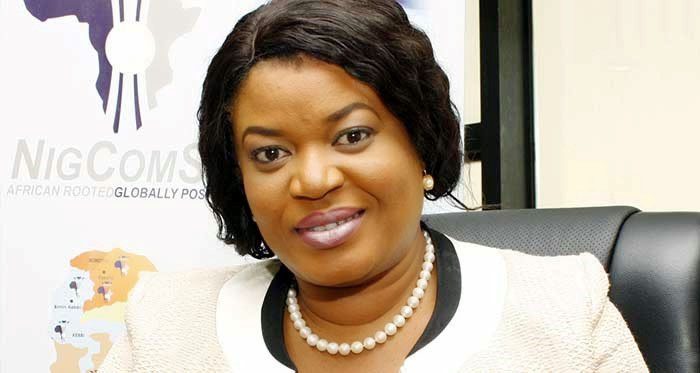The Federal Government has said the Nigerian Communications Satellite (NIGCOMSAT) Limited’s image has improved in the past eight years.
NigComSat’s vision is to be “the leading satellite operator and service provider in Africa” by exploring the commercial viability of the country’s communication satellite(s) for its socio-economic benefits.
NigComSat, was incorporated in 2006, with the government bearing ambitious plans for it. Relishing the country’s excitement, which overflowed the following year with the launch of Sub-Saharan Africa’s first geostationary communication satellite. By April 2023, it will be 18 years since the journey started, and NigComSat’s scorecard has been satisfactory.
NIGCOMSAT is led by an African space Amazon, Dr. Abimbola Alale, who has served in various capacities on various national committees that have advanced the utilization of space applications in Nigeria.
On September 26, 2003, at Plesetek, Russia, the Federal Government launched the first satellite, NigSat-1, into orbit after certain specialists had received training at Surrey Satellite Technology in London.
At this time when Nigeria is celebrating independence, it is noteworthy that agencies like NIGCOMSAT have not rested on their oars in making the Nation’s GDP grow satisfactorily.
Domiciled under the Federal Ministry of Communications, its activities have revolutionised information and communication technology in Nigeria, as well as improve national security, broadcast, internet access, and e-governance. Its services are also crucial in the health, education, and extractive sectors.
The relentless efforts of Mallam Ibrahim Pantami, the Minister of Communications and Digital Economy, in building a digital Nigeria, as well as supporting NIGCOMSAT in the growth of the nation’s Gross Domestic Product (GDP) has leveraged the Nigerian Satellite (NigComSat-1R) to deepen broadband penetration in the country. Isa Ali Pantami, who was appointed Minister of Communications and Digital Economy in August 2019, has been concerned about the growth of NigComSat. Recall that, a month after he assumed office, he directed the agency to get an International Standard Organisation (ISO) certification.
Also, that same week, at its strategic retreat, the minister said the only reason there have been arguments on whether to privatise or further commercialise the agency is because it is admittedly not “very viable”. In December, new governing board members and executive directors were appointed for the company.
Dr. Abimbola Alale is the current MD/CEO of the Nigerian Communications Satellite Limited (NIGCOMSAT), Nigeria.
Dr Abimbola actively worked on some National Priority Projects such as the NigComSat-1, NigComSat-1R and a National Direct-to-Home Digital Transmission Centre. As a result, she stands tall amongst satellite professionals in Nigeria and the world as the visible woman at the head of a communication satellite business around the globe.
At this time, when Nigeria’s oil-well is depleting, enabling the capacity of satellite-based service delivery is now as urgent as the growing need to improve the quality of life of Nigerians.
NigSat-1 is one of the five disaster monitoring satellites that make up the Disaster Monitoring Constellation network. When disaster monitoring is required, the satellites will communicate with one another and share information.
However, the second communication satellite (Nigcomsat), which was launched in May 2007, was lost owing to a break in the fuel supply link of the panel, which resulted in a solar flare. The first satellite, NigSat-1, was designed to live for five years but is still operating in orbit today.
The launch of NigComSat-1R in 2011, after the incorporation of the Nigerian Communications Satellite Limited (NIGCOMSAT) in 2006, was critical for both the country and the world. Another significant accomplishment for Nigeria was the launch that took place at Yasny, which is about a two-hour flight from Moscow, the Russian capital.
NigComSat-1R provides transponder leasing services on Ku-band, C-band, and Ka-band platforms. In addition to greater look angles and lower latency for intra-African communications traffic, 28 transponders and seven antennas ensure stronger footprints and centre beams spanning Africa, Europe, and Asia.
Stakeholders equally applauded the agency for remaining focused in the delivery of its mandate and capacity development initiative in the sector.
NIGCOMSAT of today has come a long way from what many knew some years ago. At an inter-governmental summit in Addis Ababa in 1976, the then Head of State of Nigeria, Murtala Mohammed, informed member nations of the Economic Council of Africa/Organisation of African Union (ECA/OAU) about the history of satellites.
The Federal Government created a development plan to invest N10 million in satellites between 1976 and 1980.
The entire management and staff of the agency should be commended for raising the bar; it is a symbol of teamwork.
Also noteworthy is the fact that the NigComSat-1R point, a 2.5-metre high spatial resolution sensor, was manufactured and designed entirely by Nigerian engineers.
Alale has pursued an active career in the Space Sector in the past 21years. She has served in various capacities at the National Space Research Development Agency and Nigerian Communications Satellite as an Assistant Project Director and Executive Director; Marketing, respectively. In addition, she was part of the team that championed the manufacture and launch of the first sub-Saharan Africa communication satellite (NigComSat-1) in 2007.
She has a PhD in Security & Strategic Studies from Nasarawa State University, Keffi-Nigeria. She also holds a Master degree in Space Studies and an MBA from the International Space University, Strasbourg-France. Furthermore, she obtained other certificates at the Massachusetts Institute of Technology, USA and the Management School, London and Lagos Business School, Nigeria.
Olamide Adeniji is a member of the editorial team of TheScript Newspaper




